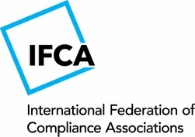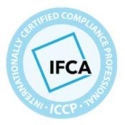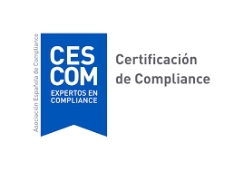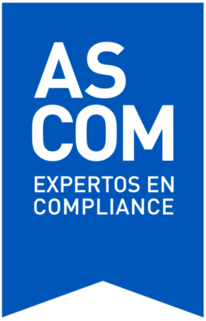SCOPE AND OBJECTIVES OF THE SESSION
Regulators in the United States and the United Kingdom are increasingly focusing on corporate culture as a key element of an effective compliance program. For instance, since 2004, the US Federal Sentencing Guidelines for Organizations states explicitly that the objective of compliance programs is to “promote an organizational culture that encourages ethical conduct and a commitment to compliance with the law”. Besides, corporate culture in financial services has been recognized as a fundamental cause of the conduct failings that have occurred within the industry, lessening consumer protection and harming markets integrity.
In Spain, the State attorney General – Circular 1/2016 on the criminal liability of legal persons under the reform of the Criminal Code made by Organic Law 1/2015, states that the purpose of compliance programs is not to avoid a criminal sanction but to promote a genuine corporate ethical culture.
Precisely, in 2016 and 2017, a team of researchers collaborating with Ethical Systems(a research collaboration housed at the NYU-Stern School of Business,) worked together to determine the appropriate constructs for what constitutes ethical culture. During this session, attendees will be able to know about the conclusions of those studies, having access to an international perspective in the field. The learning objectives of this sessions will be:
- Understanding corporate culture as a critical driver of ethical behaviour
- Identifying the organizational elements firms need to focus on to build an ethical culture.
- Understanding why a corporate culture measurement is a key tool for better understanding the drivers of behavior in firms and contributing to compliance programs effectiveness.
AGENDA
I. Understanding the role of culture as it relates to ethical behavior in organization
II. A two-factor model for ethical culture
III. Best practices for conducting culture assessments
IV. Questions
DESTINATARIOS
- Compliance Officers
- Abogados, consultores y otros profesionales que estén interesados en profundizar en esta materia y su vinculación con el ámbito del desarrollo de programas de compliance corporativo.
Contenido del Curso
* ESTA SESIÓN FORMATIVA ES VÁLIDA PARA ACREDITAR LA FORMACIÓN CONTINUA REQUERIDA PARA LA ACTUALIZACIÓN DE LA CERTIFICACIÓN DE COMPLIANCE CESCOM E iCECOM
El certificado de asistencia se emitirá, siempre que se haya asistido, al menos, al 80% de la sesión en directo. Todas las sesiones son grabadas y podrán visualizarse durante dos meses, desde la fecha de celebración de la sesión.
Si te ha gustado este artículo compártelo en tus redes
FECHA
Martes, 4 de Diciembre de 2018
MODALIDAD DE FORMACIÓN
HORARIO
18.30h – 20.00h
NIVEL
AVANZADO
HFC*
— horas
PRECIO
40-80€
PROFESOR
AZISH FILABI
Azish is Executive Director of Ethical Systems. She is also an Adjunct Professor at the NYU Stern School of Business and she has presented on business ethics and culture at various forums, including the Ethics and Compliance Initiative, the OECD, the NY State Bar Association (International Section), among others. She also writes frequently on these topics.
Previously, she was as an Assistant VP, Ethics Officer and Counsel in the Legal Group of the Federal Reserve Bank of NY. Azish has a B.A. as an Echols Interdisciplinary Scholar from the University of Virginia (UVA), a J.D. from the UVA School of Law, and a M.A. in International Affairs from the Johns Hopkins School of Advanced International Studies (SAIS).
CATERINA BULGARELLA, Ph. D.
Caterina is an Independent Ethics Advisor & Culture Architect and member of Ethical Systems’ research core team with a focus on culture framework design, culture measurement programs and post-measurement advisory solutions. She is currently serving as an adjunct professor in the Industrial/Organizational Psychology Master Program at New York University, where she teaches graduate courses in organizational behavior. She writes on these topics.
She holds a Ph.D. in Organizational Psychology, and M.A.s in Personnel Psychology and Industrial/Organizational Psychology from New York University (NYU).
ASCOM FORMA PARTE DE LA
INTERNATIONAL FEDERATION OF
COMPLIANCE ASSOCIATIONS (IFCA)
Una gran ventaja para los certificados CESCOM es que obtienen también la acreditación Internationally Certified Compliance Professional (ICCP), reconocido por las asociaciones miembro de IFCA



ASCOM FORMA PARTE DE LA INTERNATIONAL FEDERATION OF COMPLIANCE ASSOCIATIONS (IFCA)

Una gran ventaja para los certificados CESCOM es que obtienen también la acreditación Internationally Certified Compliance Professional (ICCP), miembro de IFCA


SCOPE AND OBJECTIVES OF THE SESSION
Regulators in the United States and the United Kingdom are increasingly focusing on corporate culture as a key element of an effective compliance program. For instance, since 2004, the US Federal Sentencing Guidelines for Organizations states explicitly that the objective of compliance programs is to “promote an organizational culture that encourages ethical conduct and a commitment to compliance with the law”. Besides, corporate culture in financial services has been recognized as a fundamental cause of the conduct failings that have occurred within the industry, lessening consumer protection and harming markets integrity.
In Spain, the State attorney General – Circular 1/2016 on the criminal liability of legal persons under the reform of the Criminal Code made by Organic Law 1/2015, states that the purpose of compliance programs is not to avoid a criminal sanction but to promote a genuine corporate ethical culture.
Precisely, in 2016 and 2017, a team of researchers collaborating with Ethical Systems(a research collaboration housed at the NYU-Stern School of Business,) worked together to determine the appropriate constructs for what constitutes ethical culture. During this session, attendees will be able to know about the conclusions of those studies, having access to an international perspective in the field. The learning objectives of this sessions will be:
- Understanding corporate culture as a critical driver of ethical behaviour
- Identifying the organizational elements firms need to focus on to build an ethical culture.
- Understanding why a corporate culture measurement is a key tool for better understanding the drivers of behavior in firms and contributing to compliance programs effectiveness.
AGENDA
I. Understanding the role of culture as it relates to ethical behavior in organization
II. A two-factor model for ethical culture
III. Best practices for conducting culture assessments
IV. Questions
DESTINATARIOS
- Compliance Officers
- Abogados, consultores y otros profesionales que estén interesados en profundizar en esta materia y su vinculación con el ámbito del desarrollo de programas de compliance corporativo.
Contenido del Curso
* ESTA SESIÓN FORMATIVA ES VÁLIDA PARA ACREDITAR LA FORMACIÓN CONTINUA REQUERIDA PARA LA ACTUALIZACIÓN DE LA CERTIFICACIÓN DE COMPLIANCE CESCOM E iCECOM
El certificado de asistencia se emitirá, siempre que se haya asistido, al menos, al 80% de la sesión en directo. Todas las sesiones son grabadas y podrán visualizarse durante dos meses, desde la fecha de celebración de la sesión.
Si te ha gustado este artículo compártelo en tus redes
FECHA
Martes, 4 de Diciembre de 2018
MODALIDAD DE FORMACIÓN
HORARIO
18.30h – 20.00h
NIVEL
AVANZADO
HFC*
— horas
PRECIO
40-80€
PROFESOR
AZISH FILABI
Azish is Executive Director of Ethical Systems. She is also an Adjunct Professor at the NYU Stern School of Business and she has presented on business ethics and culture at various forums, including the Ethics and Compliance Initiative, the OECD, the NY State Bar Association (International Section), among others. She also writes frequently on these topics.
Previously, she was as an Assistant VP, Ethics Officer and Counsel in the Legal Group of the Federal Reserve Bank of NY. Azish has a B.A. as an Echols Interdisciplinary Scholar from the University of Virginia (UVA), a J.D. from the UVA School of Law, and a M.A. in International Affairs from the Johns Hopkins School of Advanced International Studies (SAIS).
CATERINA BULGARELLA, Ph. D.
Caterina is an Independent Ethics Advisor & Culture Architect and member of Ethical Systems’ research core team with a focus on culture framework design, culture measurement programs and post-measurement advisory solutions. She is currently serving as an adjunct professor in the Industrial/Organizational Psychology Master Program at New York University, where she teaches graduate courses in organizational behavior. She writes on these topics.
She holds a Ph.D. in Organizational Psychology, and M.A.s in Personnel Psychology and Industrial/Organizational Psychology from New York University (NYU).
ASCOM FORMA PARTE DE LA
INTERNATIONAL FEDERATION OF
COMPLIANCE ASSOCIATIONS (IFCA)
Una gran ventaja para los certificados CESCOM es que obtienen también la acreditación Internationally Certified Compliance Professional (ICCP), reconocido por las asociaciones miembro de IFCA



ASCOM FORMA PARTE DE LA INTERNATIONAL FEDERATION OF COMPLIANCE ASSOCIATIONS (IFCA)

Una gran ventaja para los certificados CESCOM es que obtienen también la acreditación Internationally Certified Compliance Professional (ICCP), miembro de IFCA



